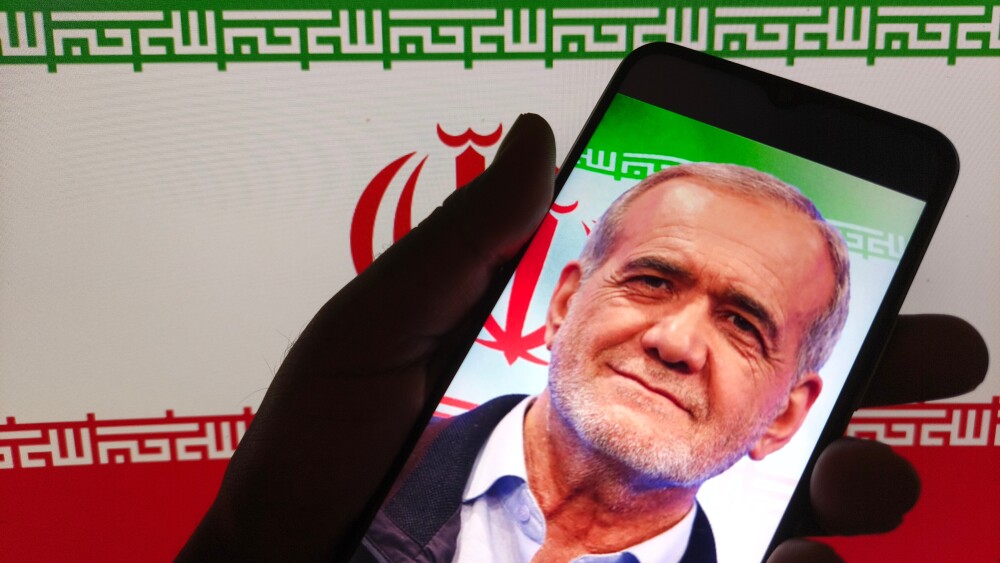As if forty-six years of repression—marked by imprisonments, executions, and even extrajudicial killings of critics—were not enough, Iran’s president has submitted a bill to parliament seeking harsher punishment for what the government deems “fake news.”
On July 26, 2025, the Islamic Republic’s parliament (Majles) approved the bill’s urgent status, moving it swiftly toward legislation. Even some regime insiders have labeled it the “gagging bill.” Under its provisions, individuals and journalists who publish any news—whether in Iran’s tightly controlled traditional media outlets or on social media platforms—could face prison sentences of up to 15 years. Intelligence agencies and courts dominated by hardliners loyal to Supreme Leader Ali Khamenei will be judge and arbiter.
Iran’s president has submitted a bill to parliament seeking harsher punishment for what the government deems “fake news.”
Mohammad Fazeli, a sociologist and professor at state universities who once held senior government positions, took to X to voice his alarm to 140,000 followers: “Mr. #Pezeshkian, we supported you so that bills like this, about ‘false information,’ wouldn’t be drafted behind closed doors and personal preferences wouldn’t override the law. What were your #LegalAffairs team and #JusticeMinister doing? Are you not concerned about the government’s credibility, your own reputation, and the state of the country that you allow such bills to be drafted and submitted?”
Another politician from the so-called reformist camp—one who had endorsed Masoud Pezeshkian’s presidential bid last year—tweeted an apology to the public, promising never to repeat what he now calls a mistake.
Pezeshkian, elected in July 2024 on promises to lift internet censorship and enact reforms, now appears to be embracing a tougher stance aimed at silencing criticism of the regime—particularly after the humiliating 12-day Israeli air campaign in June.
The blow was beyond anyone’s expectations. Not only did Israel strike Iran’s nuclear sites—followed by a U.S. bomber strike—but in the opening hour of the campaign, Israel killed more than a dozen top Iranian military commanders. In the days that followed, Israel destroyed ballistic missile launchers, air-defense systems, warplanes, and military installations. Eventually, the campaign shifted to targeting domestic repression forces, before U.S. President Donald Trump declared a ceasefire.
Iranians flooded social media with biting commentary: After decades of propaganda and billions of dollars spent on weapons and proxy forces, the Islamic Republic could not down an Israeli warplane. Not one of Iran’s aging American-made or Russian-made jets even attempted a takeoff to challenge the Israeli onslaught.
As the assault began on June 13, Khamenei reportedly fled to a bunker with his sons. Since then, he has emerged for only two brief appearances. In just days, his arch-enemy Israel shattered the regime’s carefully cultivated image of power and martyrdom.
Iranians with anonymous social media accounts continue to mock the authorities.
The damage to the regime’s credibility is profound. After years of economic mismanagement and brutality against protesters since 2017, the military defeat adds to the public’s disillusionment. The risk of sudden protests looms. Surviving military commanders reportedly fear assassinations, while mysterious explosions continue across the country and more Islamic Revolutionary Guard Corps officers are dying.
Now, the regime has introduced the “gagging bill” to silence dissent and intimidate the public. Yet, Iranians with anonymous social media accounts continue to mock the authorities. Khamenei is widely ridiculed as “Moush Ali,” or “Ali the Mouse,” for hiding in an underground bunker.
Meanwhile, on July 26, exiled crown prince Reza Pahlavi convened an opposition convention in Munich, Germany. Around 500 diaspora activists and community leaders attended, and some political prisoners and victims’ families sent messages or addressed the gathering. Hundreds more Iranians rallied outside in support. It was by far the largest and most successful opposition event to date—and if nothing else, a morale boost. Pahlavi’s tweets from the event drew over 35,000 likes, including from social media users inside Iran.
The Islamic Republic is clearly under pressure—not only from Israeli strikes but also from its collapsing infrastructure, public discontent, and the mounting sense that the regime cannot escape the crises it has created for itself.







